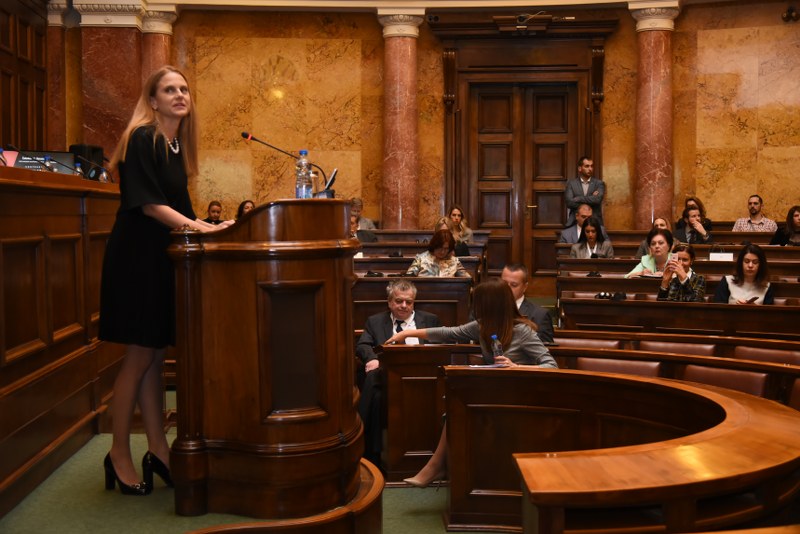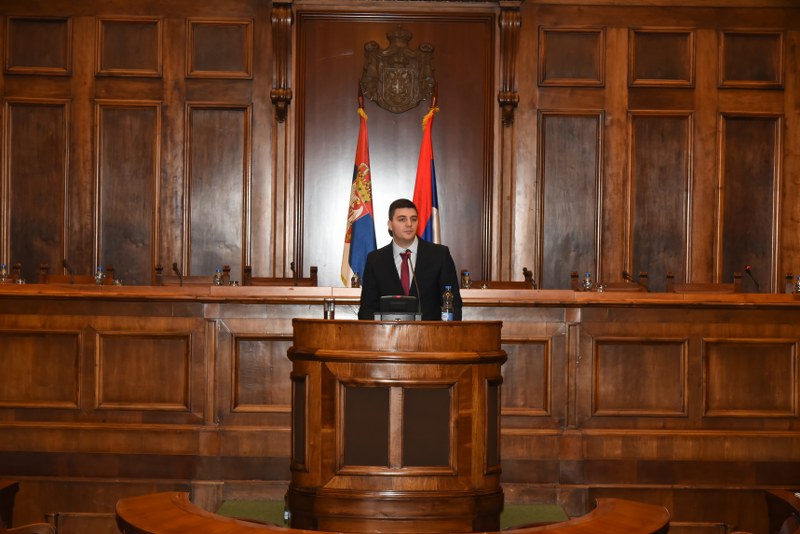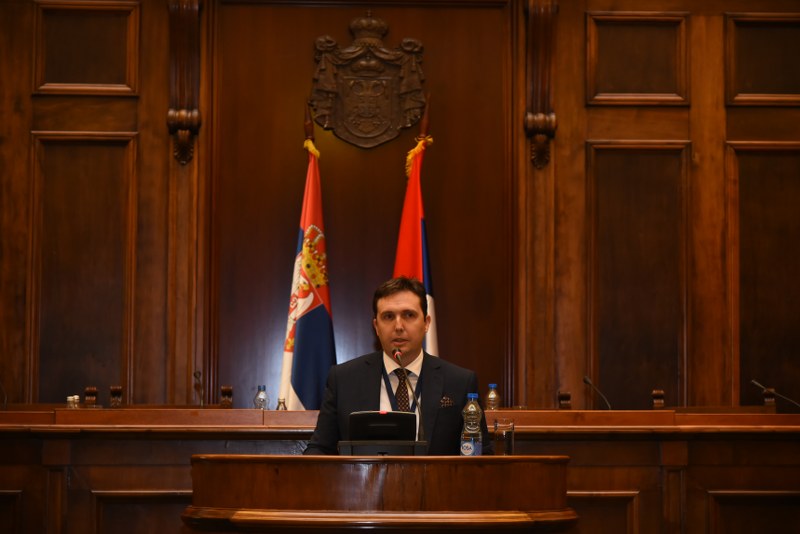Several case studies, along with two overviews, gave us an excellent insight into the current situation in the Serbian and global economy, and provided guidelines for the companies in our market.

Marija Desivojević (Delta Holding)
Further investments
We are hoping that we are going to attain a higher level of safety and predictability in doing business
In the next two years, Delta Holding plans to invest close to 600 million EUR in Serbia and abroad. The biggest share of this amount will be invested in real estate. In Serbia, our plan is to build the Delta Planet shopping mall in Autokomanda, and we do hope that, in 2018, we are going to open this long-awaited construction site. We are also planning to construct a new building that will house Delta Holding, and an InterContinental hotel in Belgrade. In spring, we are going to start the construction of the Indigo Hotel in the very heart of Belgrade. Furthermore, we are going to continue expanding in the hotel industry in the region too, and we have already mentioned that Croatia and Albania as our markets of interest. We are going to make joint investments in agriculture too, namely in increasing the number of apple trees and new cherry trees, as well as invest in cattle breeding, and pig, sheep and cow farms. We are continuing with a big investment momentum and to that end, fulfilling all the administrative prerequisites will be one of our bigger challenges. On a wider plan, we have the same problems as the rest of businesses in this country. The purchasing power of our citizens is low as a result of the low living standard, and the GDP growth is not sufficient to secure a more rapid pace of matching the living standard in developed countries, and even in the neighbouring countries in the region. Hence, we are hoping that we are going to attain a higher level of safety and predictability in doing business which are the main prerequisites for attracting domicile and foreign investments which, in turn, will result in a higher GDP.

Miloš Vujnović (JUBMES)
Positive trends
Banking sector in Serbia has become substantially concentrated
Serbia’s economic situation in 2017 is characterized by positive trends that illustrate the improved macroeconomic situation in the country. In that light, the economy has continued growing, with the improved labour market conditions and the annual inflation rate that did not exceed the target. Despite the prevailing appreciation pressures, the stability of the dinar / euro exchange rate has been maintained thanks to foreign investors investing more in the state’s securities in dinars. Structural reforms and fiscal consolidation measures, along with the coordinated monetary and fiscal policy measures, were successful and continued to yield results, which ensured a certain relaxation of monetary policy during the year following a further decrease of the benchmark interest rate. Despite certain challenges that primarily affected the agricultural sector, Serbia achieved good results in the implementation of the set goals in 2017. As a result of the economic and export growth, accompanied by the reduced indebtedness, we are continuing to move toward a sustainable level of public debt, and boosting the potential for further economic growth.

Nikola Zečević (Delhaize)
Digital in retail sector
Shoppers dictate trends
Digital trends in the retail sector have to adapt to the needs of modern day shoppers. With that in mind, Delhaize Serbia has developed a very serious approach to maintaining its direction in online commerce. The task of the leader is not only to follow the trends, but also to create them. As the retail leader, the Maxi supermarket chain is ready to present in Serbia innovative solutions in online commerce that has been growing exponentially. Last month, the chain launched a revised and redesigned e-commerce platform (www.maxi.rs) , as well as its mobile options, namely the applications for both iOS and Android.
Dragan Vlaisavljević (EPS)
Guaranteed supply
Electricity price is way below the market price
The electricity price for households in Serbia is well below the market’s price, and is expected to remain such in the long run. Also, the guaranteed electricity supply is substantially below the market prices, and this is also not going to change. Furthermore, the warranted supplier will continue to supply the guaranteed electricity market for many years to come. EPS plans to increase its electricity production in 2018 to match the 2016 level which was one of the better years for our hydro power plants. Serbia has much better power links to the neighbouring countries than gas links, and the electricity is mainly distributed from east to west, since Bulgaria and Romania have a surplus. 14 TWh of electricity is delivered at the Serbian border annually which accounts for about 40% of the power production in Serbia. The capacities for power generation from renewable energy resources have doubled both in Serbia and the region, primarily in terms of wind and solar energy. By 2021, Serbia is expected to generate 1 TWh from renewable sources, mostly from wind farms. EPS is facing a very competitive market, and hence has to continue with constant investing.